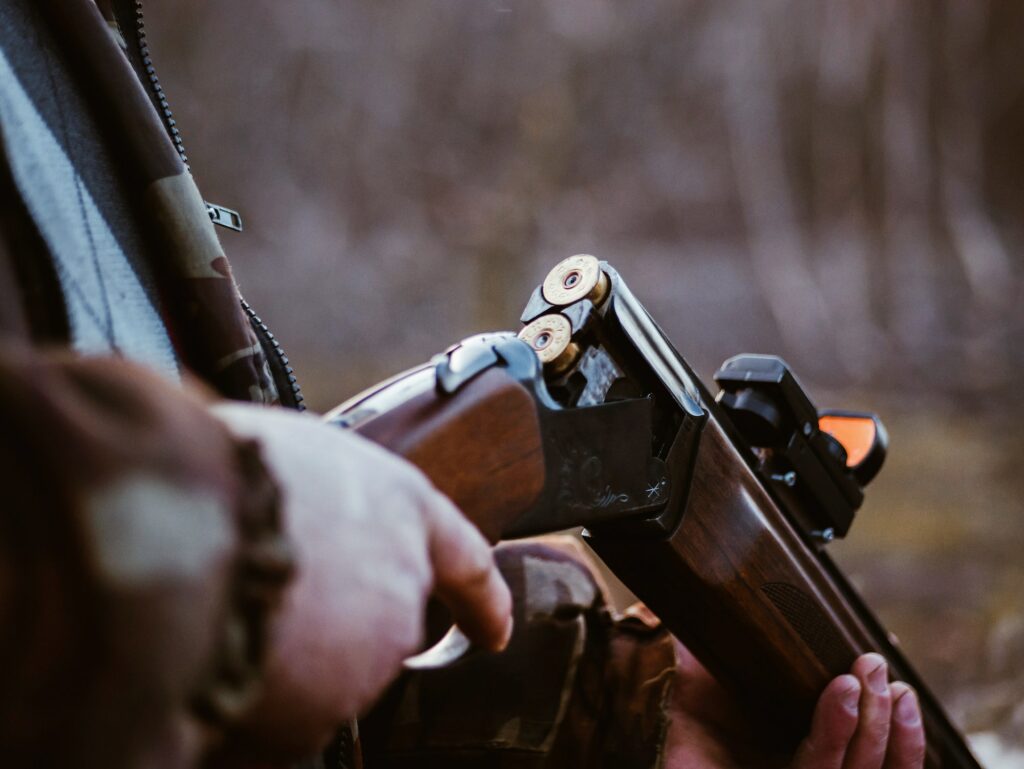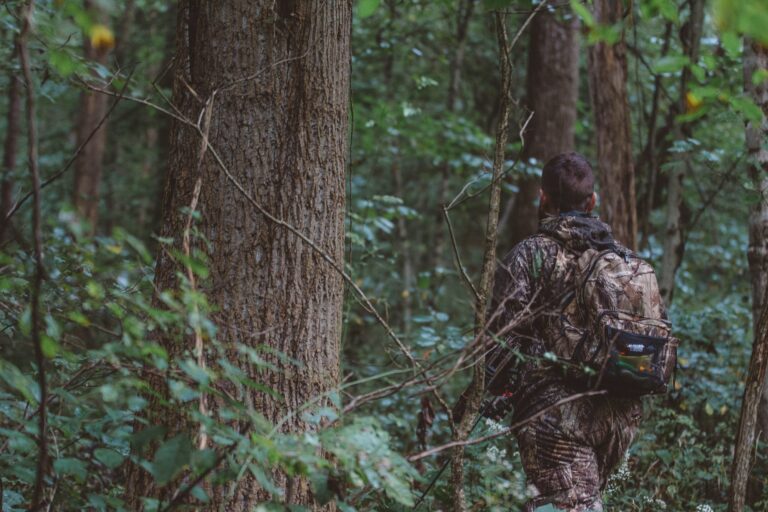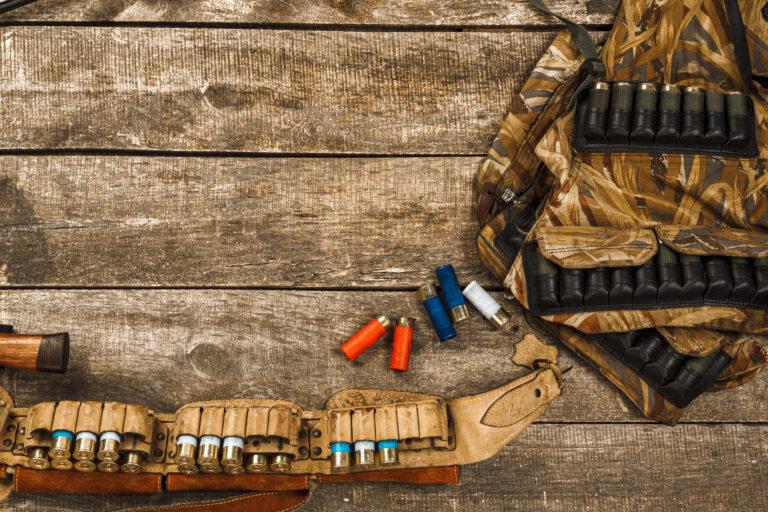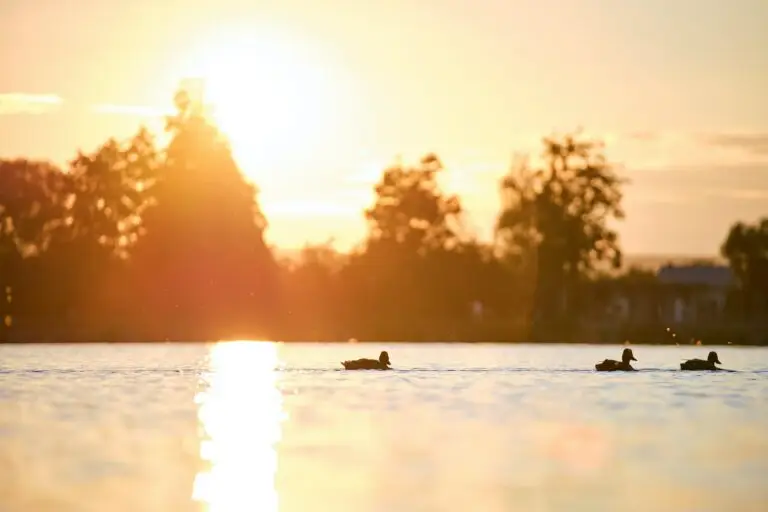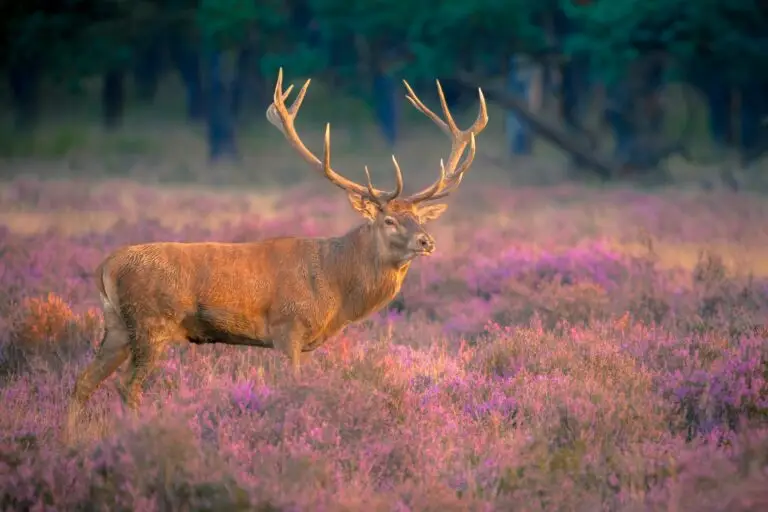My uncle was a wonderful deer hunter, truly. It felt like every time he went out in the woods, he came

back with a 10-point buck, expertly field dressed and ready to be covered in some butter, asparagus and mashed potatoes.
Table of Contents
However, he did one thing that made absolutely no sense, and that he always told me not to do (“Do as I say, not as I do!” was uttered maybe a little too often in my home):
Any time we went out in the woods with his rifle, he would light the girthiest Cuban you could imagine, get cozy in his blind, and patiently wait for his prey with the sharp smell of tobacco and spices filling up the air for half a mile around.
When he returned from his hunts, the stench of old tobacco (whom admittedly I love now because it reminds me of him and hunting) would follow him where-ever he went. I am certain that every deer in the state of Washington associates the smell of tobacco with imminent death to this day.
This guide will take the one good advice my uncle ever gave me to the next step, and do as he says, not as he did. Deer can in fact smell you from very far away, and bringing any form of other human smells with you will alert the prey long before you can spot them.
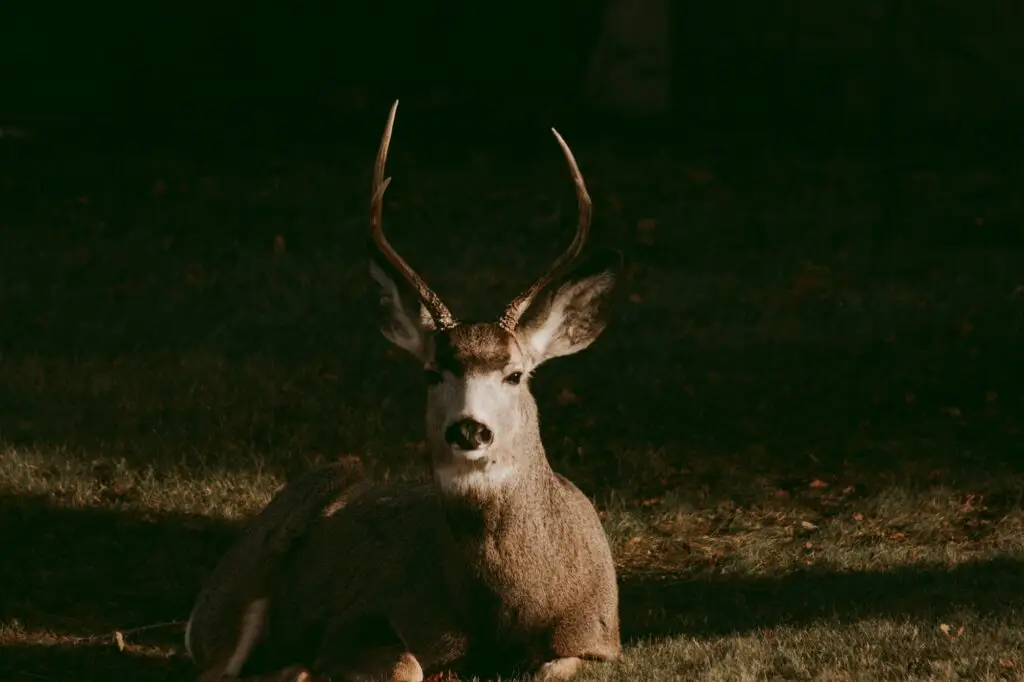
How Far Can Deer Smell?
Deer have an excellent sense of smell that helps them detect predators, locate food, and communicate with each other. The distance at which deer can smell depends on various factors such as the wind direction, the terrain, and the level of human activity in the area.
In general, deer can smell humans and other predators from a considerable distance, often up to a quarter-mile away or more, especially if the wind is favorable. They can also detect the scent of food or other deer from a similar distance, depending on the strength of the scent and the conditions. This is why it’s so important that you take lots steps prior to your hunt to help mask your smell and get as close as possible to your elusive prey.
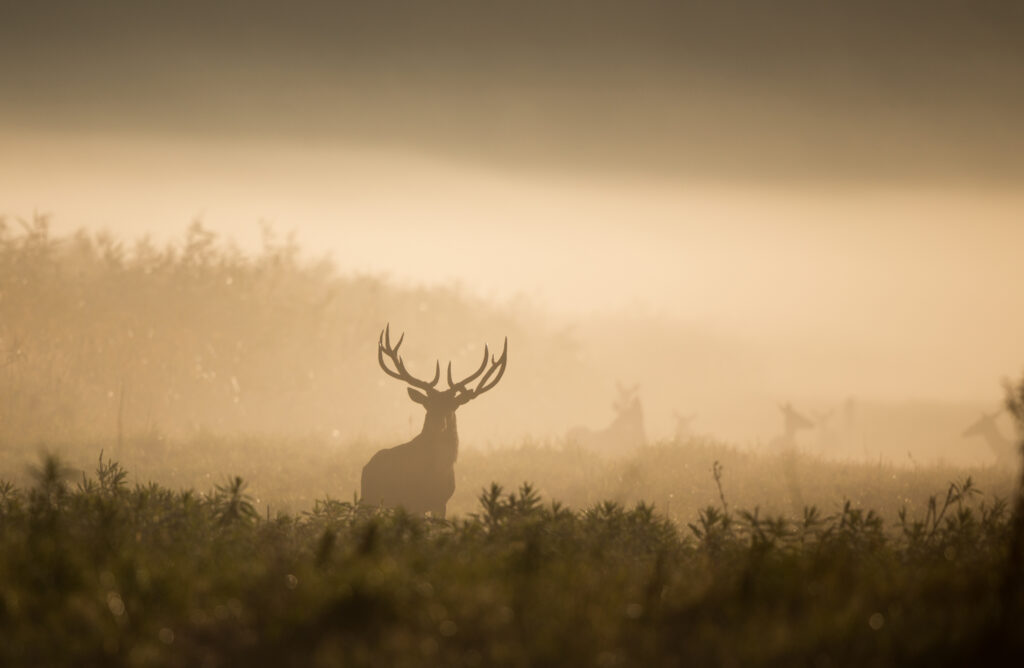
1: Control Your Scent
One of the most important things you can do to avoid being smelled by deer is to control your own scent. Take a shower before you head out using scent-free soap and shampoo, and wearing scent-free deodorant (and wear deodorant, as deer can also smell human sweat).
Unlike my uncle, avoid smoking to the best of your ability (I have a smoking friend who will switch to chewing tobacco for hunts for example). Avoid eating spicy foods, and obviously, make sure not to wear scented products like cologne or perfume. Even the scent of laundry detergent can be enough to alert a deer to your presence, so make sure to use perfume-free options for your hunting clothes.
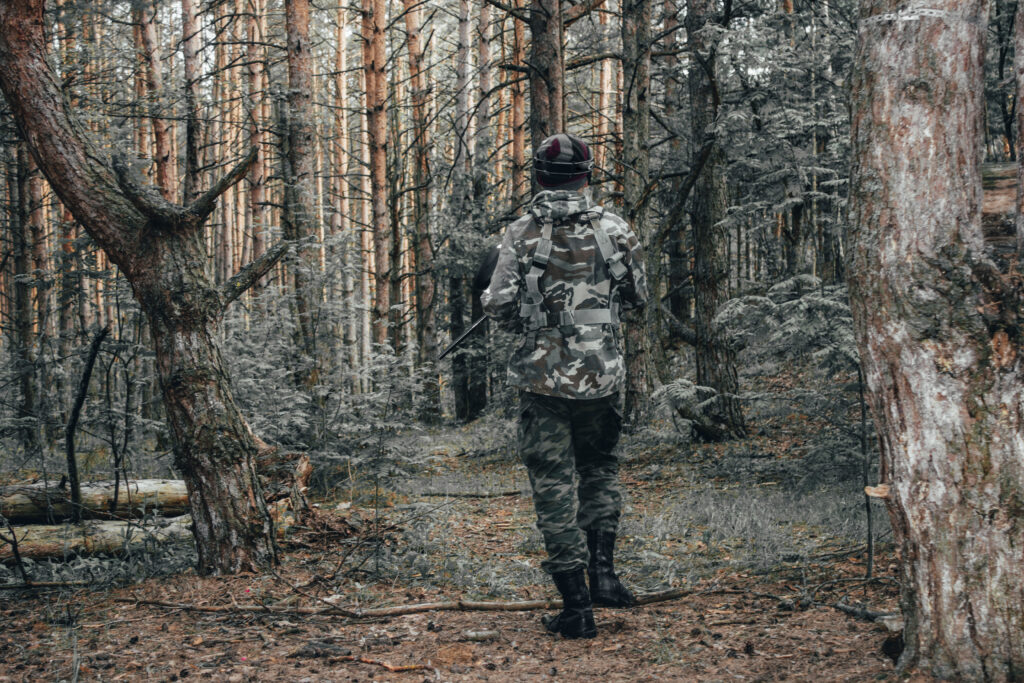
2: Wash Your Hunting Clothes
Your hunting clothes can hold onto the scent from previous hunts even after you’ve washed them. It’s important to use a scent-free detergent and run them through the wash a few times before hunting to remove any residual odors.
Once your clothes are clean, store them in an airtight container or bag until you’re ready to hunt, and not hanging in a closet where scents from your house, garage, or other clothes and items can seep into the material.
3: Use Scent-Masking Products
In addition to removing your own scent, you can use scent-masking products to help you blend in with your surroundings. Scent-masking sprays, scent-eliminating field wipes, and scent-killing laundry detergents can all help to reduce your odor.
You can find tons of options at your local Bass Pro Shop, REI or even Target. It can be difficult to find so it might be worth hurting your pride just a little and asking a clerk for help (definitely would have saved me a lot of time)
4: Hunt with the Wind in Your Favor
You should always try to hunt with the wind in your favor so that your scent is carried away from the deer.
Pay attention to the weather and the terrain, and plan your approach accordingly. If the wind changes direction, you may need to move to a different location or wait for a better opportunity.
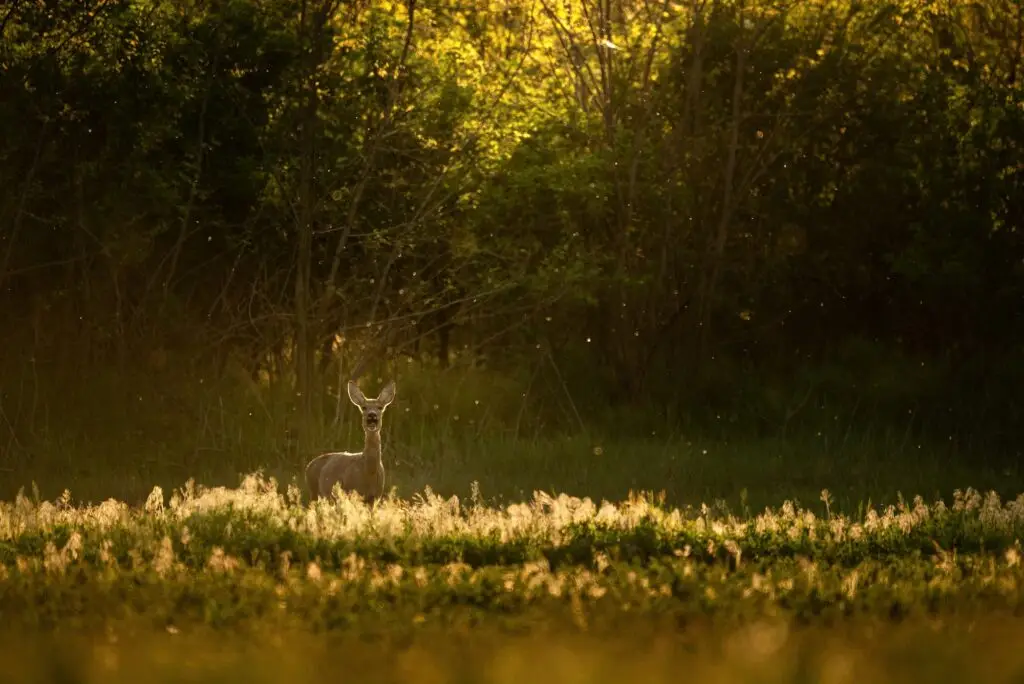
When you start getting a sense of where you might spot a deer, set up with the winds blowing towards you. The higher the winds, the better your favor. The wind is your best friend – and I am almost inclined to believe that my uncle could control the weather and that’s why he could keep smoking his cigar.
5: Avoid Touching Vegetation
Deer can also detect your scent on the vegetation around you. To avoid leaving a scent trail, refrain from touching plants, bushes, or trees as you move through the woods. Even slight contact can transfer your scent, so using a hunting tool like a stick or trekking pole to move branches or leaves out of your way can be an effective way to move through brushes without leaving a scent trail.
6: Use Cover Scents
Cover scents can help mask your scent and make you less noticeable to deer. You can use natural cover scents like pine needles, leaves, or dirt, or use commercial cover scents that you can also get from REI or Bass Pro.
Just don’t go overboard on the mud. A buddy of mine once decided to roll around in a muck pool to “blend in” both visually and smell-all-y (I’m a hunter not a professor cut me some slack on the vocabulary). Turns out all it did was make him wet, cold, and whiny. Would you believe he has a PhD in atmospheric science?
Also keep in mind that in most states, using special cover scents like deer urine or glands to help lure prey toward you, is very illegal.
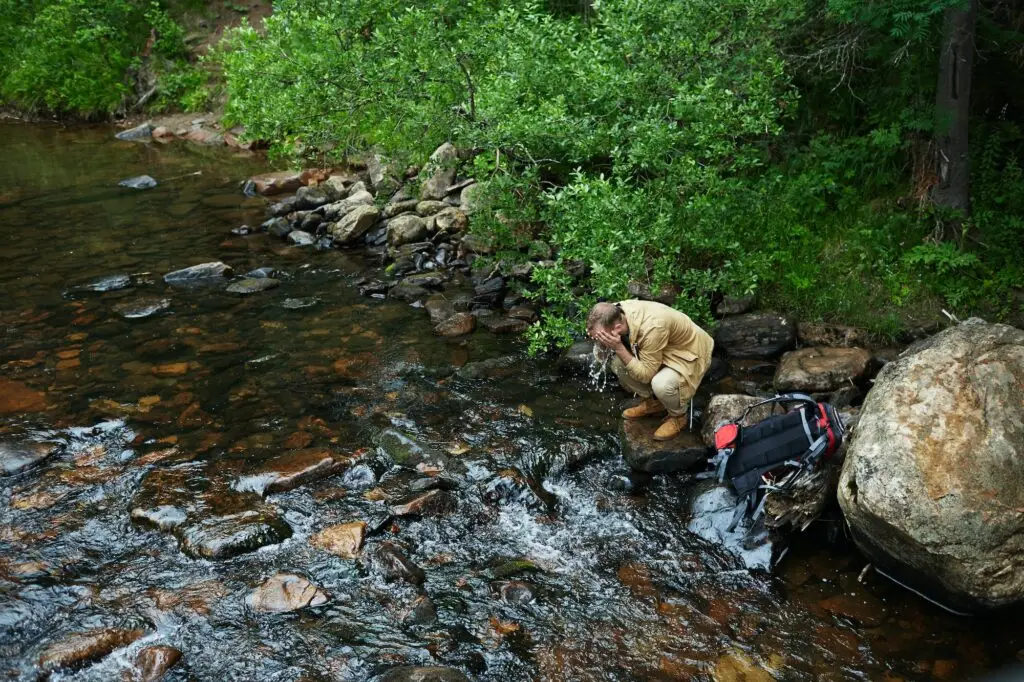
7: Pay Attention to Your Footsteps
Don’t forget that deer also has acute hearing and can detect even the slightest sounds, including the noise of your footsteps. Loud or sudden noises can startle deer and cause them to flee, ruining your chances of getting a clean shot in.
To avoid being detected, it’s crucial to walk slowly and deliberately, placing each footstep with care. Walking on soft ground like forest litter, moss, or leaves can help minimize noise. Avoid walking on dry twigs, rocks, or other hard surfaces that make more noise.
Take your time and adjust your pace accordingly. Slow and deliberate steps can make a significant difference in how close you can get to deer without alerting them. By paying attention to your footsteps, you can increase your chances of success and have a more enjoyable hunting experience.
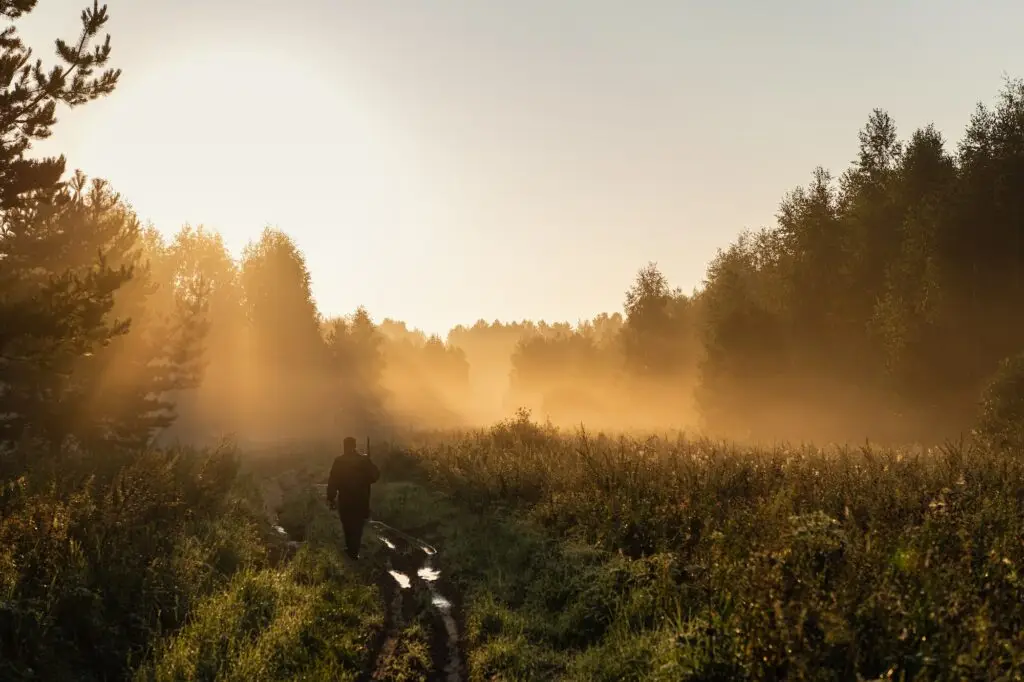
Hunting Success Starts with Scent Control
Hunting requires more than just skill and luck; it also requires being aware of your scent, sound, and visual presence in the woods.
Controlling your scent is essential. Deer’s excellent sense of smell allows them to detect even the slightest of scents, including human sweat or laundry detergent. To avoid alerting your prey, take steps like washing your clothes with scent-free detergent, using scent-masking products, hunting with the wind in your favor, and refraining from touching vegetation.
I too love a good whiskey and cigar, and I did always look up to my uncle as the one true Hunting God – but when hunting deer, it is better to stay away and increase your chances of a venison dinner. And trust me, nothing pairs better with a venison dinner than a good whiskey and cigar.
Happy Hunting!
Looking for other tips and tricks regarding hunting? Check out our other guides here!
